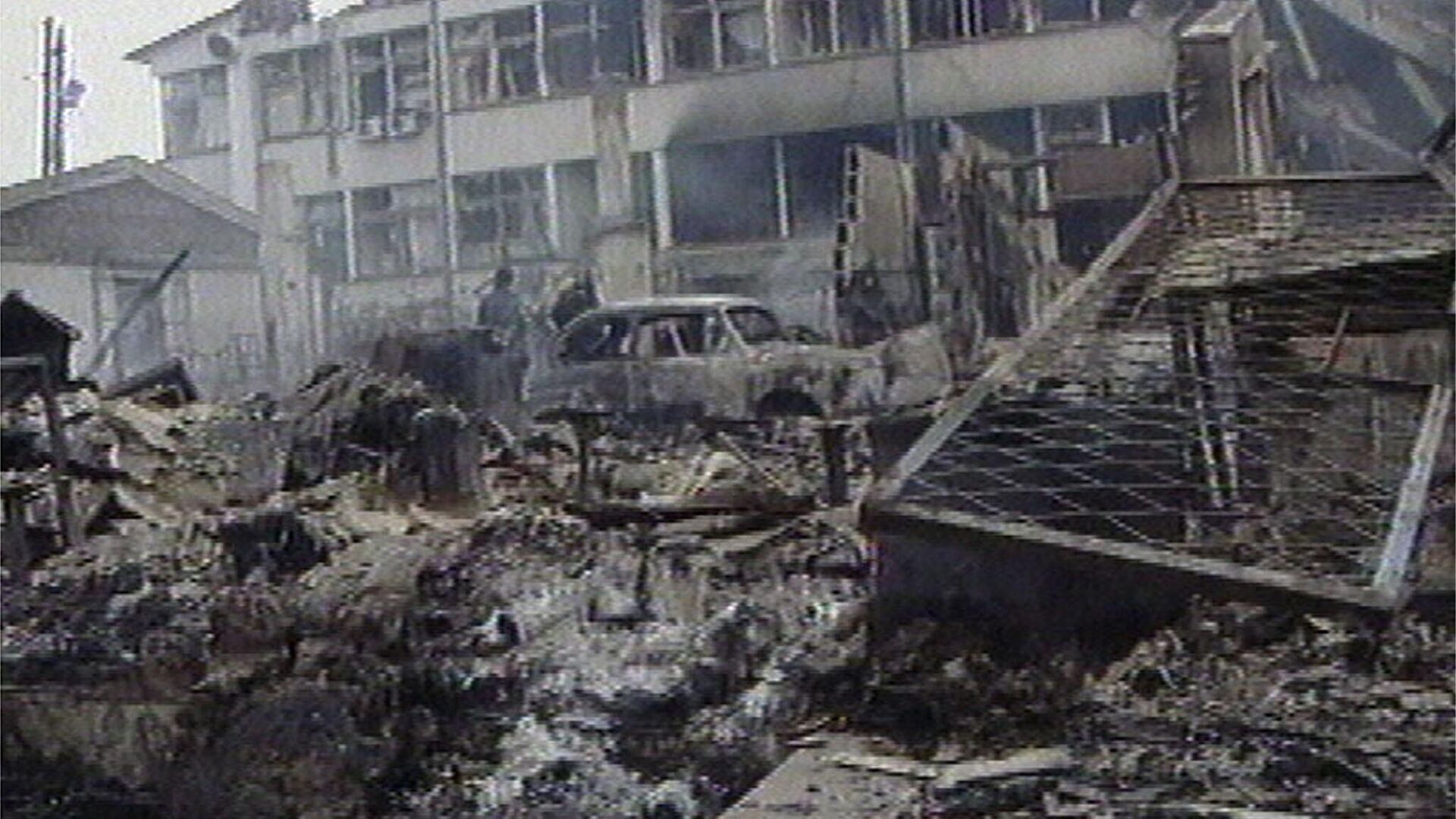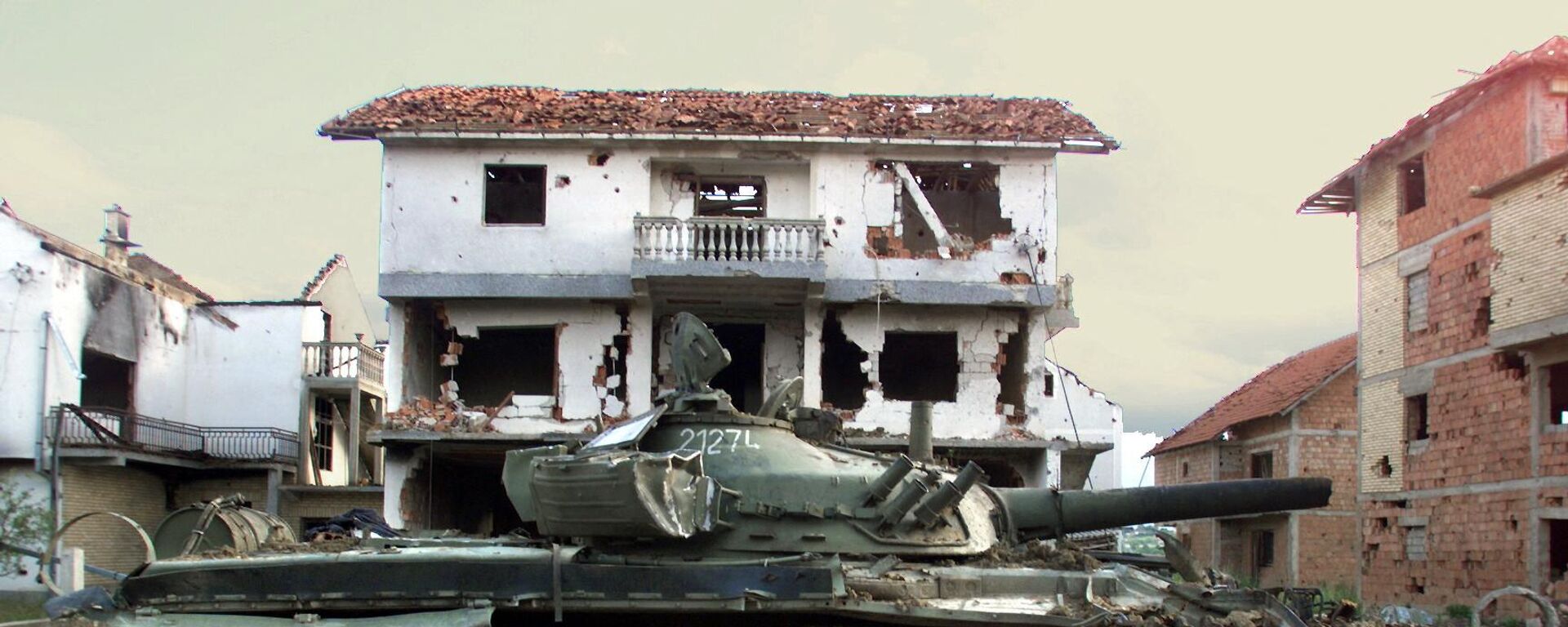https://sputnikglobe.com/20240327/cancer-incidence-mortality-after-nato-bombing-of-yugoslavia-still-on-rise---serbian-health-minister-1117571639.html
Cancer Incidence, Mortality After NATO Bombing of Yugoslavia Still on Rise - Serbian Health Minister
Cancer Incidence, Mortality After NATO Bombing of Yugoslavia Still on Rise - Serbian Health Minister
Sputnik International
Cancer incidence and mortality rates after the 1999 NATO bombing of Yugoslavia are increasing even now, Serbian Health Minister Danica Grujicic has said in an interview with Sputnik.
2024-03-27T01:30+0000
2024-03-27T01:30+0000
2024-03-27T06:59+0000
world
1999 nato bombings
nato bombings
yugoslavia
serbia
nato
https://cdn1.img.sputnikglobe.com/img/07e8/03/1b/1117571481_0:208:2049:1360_1920x0_80_0_0_cc7359250d65a0000d31e5ffa15ff25c.jpg
Grujicic is a renowned neurosurgeon who served as director of the Institute of Oncology and Radiology of Serbia before being appointed health minister in 2022. Approximately 40,000 people in Serbia are diagnosed with cancer every year, and the Serbian Ministry of Health is currently working on software to more quickly and automatically register new patients, according to medics. He added that together with several Serbian doctors he authored a book titled "The truth about the aftermath of the 1999 bombing of Serbia" that compiles all available facts and statistics on the issue.Grujicic added that Russia's progress in cancer treatment and nuclear medicine could help Serbia."The combination of biological therapy and isotopes, which gives the greatest hope for the long life of our patients, has been the biggest discovery. I sincerely hope that as Russia is more advanced in this compared to other countries, we will have the opportunity to work closely with [Russian state nuclear corporation] Rosatom and learn from them," the minister added.On March 24, an official ceremony marking the 25th anniversary of the NATO bombing of Yugoslavia was held in the southern Serbian city of Prokuplje. Top officials participated in the ceremony including Serbian President Aleksandar Vucic, Republika Srpska President Milorad Dodik, Serbian Orthodox Church Patriarch Porfirije, members of the governments and parliaments from Serbia and Republika Srpska, and representatives of the clergy, army and police, numerous citizens.In 1999, an armed confrontation between Albanian separatists from the Kosovo Liberation Army and the Serbian army and police led to the bombing of Yugoslavia by NATO forces, which started on March 24 and lasted for over two months. The Serbian authorities say that about 2,500 people, including 89 children, were killed and about 12,500 people were injured in the bombings. Vucic said that the use of depleted uranium weapons caused an increase in the number of cancer patients in the country.
https://sputnikglobe.com/20240325/anti-nato-rally-in-belgrade-starts-with-moment-of-silence-for-moscow-terror-attack-victims-1117533023.html
yugoslavia
serbia
Sputnik International
feedback@sputniknews.com
+74956456601
MIA „Rossiya Segodnya“
2024
Sputnik International
feedback@sputniknews.com
+74956456601
MIA „Rossiya Segodnya“
News
en_EN
Sputnik International
feedback@sputniknews.com
+74956456601
MIA „Rossiya Segodnya“
Sputnik International
feedback@sputniknews.com
+74956456601
MIA „Rossiya Segodnya“
bombing of yugoslavia, illegal bombing, nato agression, nato intervention, violation of international law, cluster munitions, uranium shells, uranium bombs, cancer rates, cancer incidence, cancer after bombings, bombings consequences
bombing of yugoslavia, illegal bombing, nato agression, nato intervention, violation of international law, cluster munitions, uranium shells, uranium bombs, cancer rates, cancer incidence, cancer after bombings, bombings consequences
Cancer Incidence, Mortality After NATO Bombing of Yugoslavia Still on Rise - Serbian Health Minister
01:30 GMT 27.03.2024 (Updated: 06:59 GMT 27.03.2024) BELGRADE (Sputnik) - Cancer incidence and mortality rates after the 1999 NATO bombing of Yugoslavia are increasing even now, Serbian Health Minister Danica Grujicic has said in an interview with Sputnik.
Grujicic is a renowned neurosurgeon who served as director of the Institute of Oncology and Radiology of Serbia before being appointed health minister in 2022. Approximately 40,000 people in Serbia are diagnosed with cancer every year, and the Serbian Ministry of Health is currently working on software to more quickly and automatically register new patients, according to medics.
"We and our neighbors — the Croats and the Hungarians — have been rotating for years at the top of mortality rates of oncological diseases in Europe. Thus, according to ECIS [European Cancer Information System] data for 2020, Serbia was in first place with an index of 150.6 per 100,000, while the European average was 108.7 points. We have tumors of respiratory systems (lungs), mammary glands, central nervous systems, thyroids, circulatory and digestive systems leading in terms of mortality," the health minister has said.
He added that together with several Serbian doctors he authored a book titled "The truth about the aftermath of the 1999 bombing of Serbia" that compiles all available facts and statistics on the issue.
"This is about genocide, ecocide and a cruel experiment on us, all incidence rates are still going strictly upward, as literally seen in the number of new cases and deaths from cancer on a straight upward graph from 1999 to 2018," the minister said.
Grujicic added that Russia's progress in cancer treatment and nuclear medicine could help Serbia.
"The combination of biological therapy and isotopes, which gives the greatest hope for the long life of our patients, has been the biggest discovery. I sincerely hope that as Russia is more advanced in this compared to other countries, we will have the opportunity to work closely with [Russian state nuclear corporation] Rosatom and learn from them," the minister added.
On March 24, an official ceremony marking the 25th anniversary of the NATO bombing of Yugoslavia was held in the southern Serbian city of Prokuplje. Top officials participated in the ceremony including Serbian President Aleksandar Vucic, Republika Srpska President Milorad Dodik, Serbian Orthodox Church Patriarch Porfirije, members of the governments and parliaments from Serbia and Republika Srpska, and representatives of the clergy, army and police, numerous citizens.
In 1999, an armed confrontation between Albanian separatists from the Kosovo Liberation Army and the Serbian army and police led to the bombing of Yugoslavia by NATO forces, which started on March 24 and lasted for over two months. The Serbian authorities say that about 2,500 people, including 89 children, were killed and about 12,500 people were injured in the bombings. Vucic said that the use of depleted uranium weapons caused an increase in the number of cancer patients in the country.



